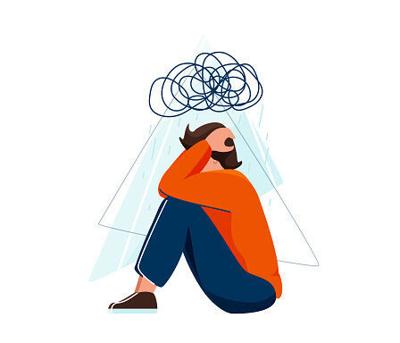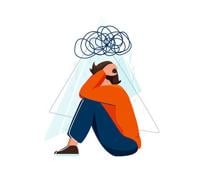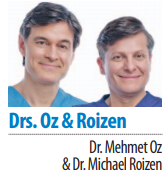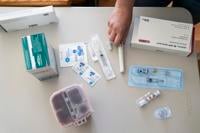One out of four New Hampshire residents in a recent health survey reported using prescription medication for their mental or emotional health in the prior month.
And one in eight said they had needed medication or therapy during that time but had not gotten it.
The pandemic that’s about to enter a third year is taking a toll on our collective mental health.
Dr. Cynthia Whitaker, president and CEO of Greater Nashua Mental Health, said the isolation and stress from the ongoing health crisis “is increasing everybody’s baseline.”
“So if you were somebody who was healthy and well, now you’re somebody who’s maybe a little stressed,” she said. “If you were somebody who was on the verge of needing support or having symptoms, now you probably are.”
And, she said, “If you were somebody already experiencing symptoms, now you’re experiencing more symptoms.”
“It’s kind of shifting for everyone.”
Survey says
The U.S. Census Bureau, along with federal health agencies, launched a national “Household Pulse Survey” in August 2020 to assess the social and economic impacts of COVID-19 on Americans.
The survey periodically asks people if they used prescription medication for their mental health in the previous four weeks, or received counseling or therapy from a mental health professional.
In early January, 26.5% of New Hampshire respondents reported medication use, a bit higher than the national estimate of 22%. In August 2020, that number for New Hampshire was about 21%; it peaked in December 2020 at nearly 29%.
In the most recent survey, about 13% of New Hampshire respondents also reported receiving counseling or therapy in the prior four weeks, higher than the national estimate of 10.6%. That was up significantly from the first time the survey was conducted in 2020, when about 7% reported doing so.
Susan Stearns, executive director of NAMI New Hampshire, the state chapter of the National Alliance on Mental Illness, said those results don’t surprise her. “There’s no question we are all going through this collective difficult experience,” she said.
“Given what we are hearing in terms of the increased need, and rates of anxiety, depression and suicidal thoughts that we’re seeing in some of the other data that has come out, I think it’s understandable that we’re seeing an increased number of people seeking medication and seeking therapy and utilizing those tools,” Stearns said.
More open to help
Dr. Ashwini Saxena, medical director at the Mental Health Center of Greater Manchester, said it’s difficult to know if the number of people relying on medication for their mental health is actually higher than pre-pandemic levels, since the pulse survey only began in August 2020.
But if so, he said, “My first reaction is this is actually a testament to the reduction of stigma around mental health care.”
“Maybe more primary care doctors are feeling comfortable in prescribing mental health treatment, so it could be a good thing overall,” Saxena said.
Danielle Capelle, director of mental health services at Catholic Charities New Hampshire, said the survey results may reflect a growing comfort level around mental health issues. “Maybe it’s just much more acceptable now to actually talk about it,” she said.
In the past, she said, “Either they wouldn’t have admitted it or honestly wouldn’t have even talked to their doctor about medicine. It’s quite possible the numbers went higher because people are actually willing to go to their doctor.”
Capelle said she’s had several clients who in the past have resisted taking psychiatric medication but are willing to try it now. “I think part of it is the pandemic,” she said. “It’s a lot more stress on top of the stress they already had.”
She’s not a prescriber, so she refers those individuals to their primary care providers.
NAMI’s Stearns said her biggest concern is access to care: “the number of folks who are feeling the need to access counseling or therapy but are unable to do so because of the workforce shortages.”
In the federal survey, the number of people in New Hampshire who reported needing counseling but not getting it went from 7.3% in August 2020 to 12.3% in early January.
GNMH’s Whitaker said the mental health field is facing the same challenges as the medical industry, with workforce shortages and increased demand for care. As a result, she said, “Those that need more routine treatment might need to wait longer because we need to make sure we’re providing the resources … for those who are in crisis.”
No quick fix
Whitaker said medication therapy is most effective when paired with counseling, therapy or some other behavioral intervention.
“I think as humans, we want a quick fix,” Whitaker said. “We want our problems to be something that we can go to an expert and have them solved.”
In her experience, Whitaker said, “The best answers are the ones that come out of conversation and connection and really understanding what’s going on for somebody.”
It’s like someone with diabetes, she said: “If you take insulin, it can only go so far. If you take insulin while you also make diet changes, you have more success.”
“It’s the same with mental health,” Whitaker said. “If you take a medication for anxiety, you’ll have less anxiety, but if you don’t engage in counseling or therapy …you’re not going to have long-term success.”
Medication isn’t a cure-all but it can help, Catholic Charities’ Capelle agreed. “The point of medication isn’t to make everything better; it’s to say OK, we calmed your brain down just enough so you can actually use those coping skills,” she said.
She likens it to someone who uses a cast or boot to stabilize a broken limb, but who still may need physical therapy to fully recover.
MHCGM’s Saxena said there are plenty of reasons people are stressed these days, with the pandemic’s impacts on schools, child care, work and family life. Thousands of New Hampshire residents have lost loved ones to the virus, and many more have been sickened.
He said taking the time to go outdoors, connect with family and friends, and practice mindfulness can all help reduce stress and anxiety.
“And above all, strive to be hopeful,” Saxena said.
What else to do
But if someone is experiencing sustained low mood, difficulty sleeping, hopelessness and impaired ability to function at daily tasks or connect with loved ones, he said, “That is a time to seek help.”
NAMI-NH’s Stearns said she recommends people “go back to basics,” such as getting enough exercise, sleep and nutrition.
“Sleep deprivation is used as torture,” she likes to remind people. “So when you’re struggling with sleep, there’s a real valid reason why you don’t feel well.”
And she said, “It makes a huge difference for your mental health if you can get outside and have some sun on you, even in New Hampshire in the middle of winter. Going outside, fresh air and sunshine will help improve your mood.”
Stearns said there also are apps that can be helpful to mental health; she likes the VA’s Covid Coach free app.
In these challenging times, she said, “Maybe you need to make allowances for yourself and give yourself a little breathing space on all the things we’re trying to do. And be kind to yourself — because it’s hard.”
It’s also important to check in on others to see how they’re doing, Stearns said. “It actually makes us feel good too when we help people,” she said. “It is like a double gift really.”
Catholic Charities counselor Capelle works with clients to create a metaphorical “toolbox” of coping skills to help when they’re feeling anxious, stressed or depressed.
She also encourages them to fill an actual box with items that represent the five senses — for instance, a scented candle for smell, chocolate for taste, a photo of something that makes them happy for sight, a favorite playlist for sound, a stuffed animal or worry stone for touch. When you’re feeling stressed, lighting a candle, listening to music or eating a favorite snack can help boost your mood, she said.
Capelle made one for herself during the pandemic, she said. “Chocolate is definitely in mine,” she said.
+++
For information about support groups and other resources, contact NAMI NH at: 800-242-6264, or naminh.org.
If you or someone you care about is experiencing a mental health crisis, call the New Hampshire Rapid Response Access line: 833-710-6477.









